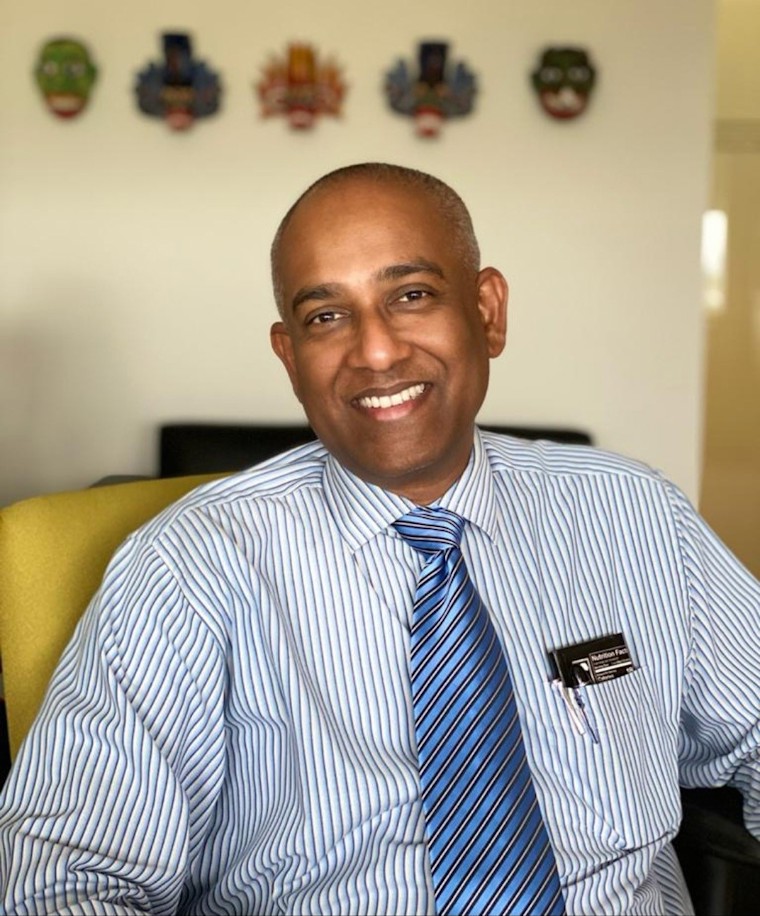The ACGME and Global Health: Insights from Singapore on the Regional View of Glocalization
“The way I see glocalization is in how well we adapt the concepts, the constructs, and the best practices that are international into local context,” said Dujeepa Samarasekera, FAMS, FRCP (Edin), PPA(G). “Throughout my almost quarter century career in medical education, I have seen a lot of good concepts and constructs fail miserably when you try to use them lock, stock, and barrel the way it is used in another place.”
To further explore glocalization in the health care space, ACGME Global Services spoke with Dr. Samarasekera, the senior director of National University of Singapore School of Medicine Centre for Medical Education and senior consultant of the Ministry of Health Singapore and one of the leading figures in both thought and application of this concept.
The Region as the Nexus between Global and Local
Building on the previous post in this series that discussed a global perspective on glocalization, this post shares Dr. Samarasekera’s insights from a regional view. As he explained, the region connects the global with the local, acting as an intersection between the two.
For Dr. Samarasekera, three key factors—socio-cultural, political, and economic—are vital in harmonizing concepts, constructs, and best practices shared within a regional perspective. While significant variations in these factors can occur within different areas of a region, once agreements have been made to collaborate across a region, commitments and efforts begin to provide mutual support to help all develop.
“What I've seen, what really works is a [regional] bloc coming together that has similar social, political, geographic, cultural, and economic considerations,” Dr. Samarasekera explained. He shared a practical example of the Association of Southeast Asian Nations (ASEAN) region. There, harmonization in undergraduate medical education has occurred at various levels based on standards established by the World Federation for Medical Education (WFME). With that success as a foundation, the current impetus is to achieve something similar for post-graduate medical education (PGME), based on the recently released WFME Standards for PGME. Dr. Samarasekera noted that other regions within Asia have embarked on similar collaborative efforts.
Making the Region Work
Dr. Samarasekera elaborated on the steps to making a region work within the glocalization concept. Of key importance, he said, is retaining individual countries’ standards while developing and validating a common set of basic minimum standards across the region, toward the goal of improving quality across both.
“We are all trying to raise standards, and that's where we and also our leadership are very much aligned to share resources and to help each other develop,” stressed Dr. Samarasekera. He hopes a common agreement can be reached and implemented within the ASEAN region in the near future.
Similarly important, Dr. Samarasekera stressed greater regionalization at an individual level for the movement of human resources. He envisions an environment of mutually beneficial exchanges, where learners can acquire knowledge and have experiences not possible in their local area by traveling elsewhere within the region. “For example,” he said, “in Singapore, our residents could go to places where they will see a variety of cases and sometimes do case presentations that are not seen here in Singapore, and then work with [these other countries] to develop their skill sets and knowledge base, and vice versa.”
However, citing one of the challenges of this process, he warned, “What we call unequal distribution could lead to professional movement of labor from the less resourced to more resourced, including poaching or predatory behaviors of certain health systems.”
The Will to Challenge Inertia
Dr. Samarasekera also cautioned against inertia. “Medicine is very territorial and very hierarchical,” adding that financial resources are finite, even for better-resourced countries within a region.
With desire and political will, Dr. Samarasekera believes this can be accomplished. “It has to be a win-win situation and we need to create that win to show the benefits for both countries and regions.”
He stressed the need for commitment across the region to achieve long-term results. “It's about getting both our political and institutional leadership to see this bigger picture and its value.”
Stay tuned! In the next post in this series, we will discuss glocalization from a more localized perspective.
Through this series, The ACGME and Global Health seeks to engage the global medical and health care communities in conversations on challenges facing global health that transcends borders. The goal of this content series is to provoke discussion about issues that concern the global PGME community, enabling critical conversation that engages with stakeholders across borders, disciplines, and perspectives. This post includes input from ACGME and public health leaders from recent interviews and presentations.
ACGME Global Services, a department of the ACGME, was created to advance the ACGME Mission by working with global entities to enhance the quality of resident and fellow physicians' education. We invite comments by email (global@acgme.org) and through Twitter and LinkedIn (with the hashtag #ACGMEGlobalServices). We also seek external voices in future posts in the ACGME and Global Health Blog series; email us if you would like to participate.

